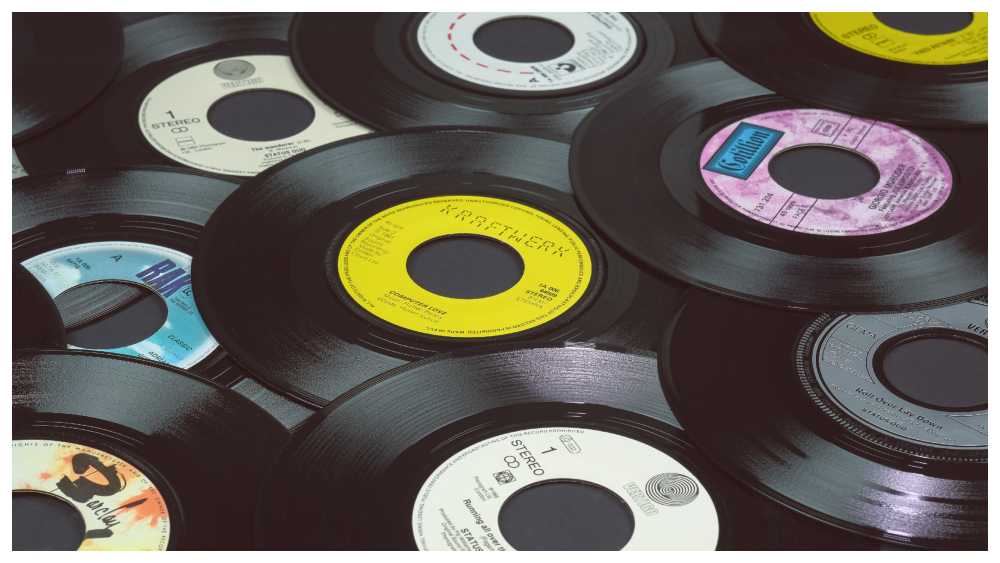Pop songs are one minute and 13 seconds shorter on average than they were 20 years ago. Are algorithms to blame?
Much has been made of the influence streaming platforms have had on the length and form of pop music in recent years, and new research seems to suggest it’s had a palpable impact on track lengths.
Manchester-based digital label Ostereo recently undertook a study to document the length of every UK number one since 2008, plus UK number one singles in 1998 and Spotify’s top 100 most streamed songs.
The record label’s findings reveal a significant decrease in song length and suggests it is a trend that’s here to stay.
The average UK number one in 1998 was four minutes and 16 seconds long, while 2019’s average so far is just three minutes and three seconds.
Overall the average number one has shrunk by a fifth over the last two decades with 2018 seeing the biggest drop in song length and the first year since Spotify launched to have no original number one longer than four minutes and 30 seconds.
The longest number one in the last 20 years was the 1998 Oasis track All Around the World, at nine minutes and 38 seconds.
Meanwhile, the shortest song to appear in Spotify’s top 100 is XXXTentacion’s 2018 single Jocelyn Flores, at a slight one minute 59 seconds, and Adele’s 2015 song Hello the longest, at a far-from-epic four minutes and 55 seconds.
Howard Murphy, founder of Ostereo, highlights that a shift away from radio as the primary platform in breaking artists should theoretically mean more freedom.
He says: ‘We’re seeing two trends emerge simultaneously here; the average hit song is getting shorter, while longer songs are becoming hits less often. Now that artists don’t rely solely on being playlisted by radio to achieve chart success, they are less constrained by the traditional demand to keep their song close to three three-minute mark. So in theory, they can make their songs as long or as short as they like.’
Much has been made of the influence streaming platforms have had on the length and form of pop music in recent years, and new research seems to suggest it’s had a palpable impact on track lengths.
Manchester-based digital label Ostereo recently undertook a study to document the length of every UK number one since 2008, plus UK number one singles in 1998 and Spotify’s top 100 most streamed songs.
The record label’s findings reveal a significant decrease in song length and suggests it is a trend that’s here to stay.
The average UK number one in 1998 was four minutes and 16 seconds long, while 2019’s average so far is just three minutes and three seconds.
Overall the average number one has shrunk by a fifth over the last two decades with 2018 seeing the biggest drop in song length and the first year since Spotify launched to have no original number one longer than four minutes and 30 seconds.
The longest number one in the last 20 years was the 1998 Oasis track All Around the World, at nine minutes and 38 seconds.
Meanwhile, the shortest song to appear in Spotify’s top 100 is XXXTentacion’s 2018 single Jocelyn Flores, at a slight one minute 59 seconds, and Adele’s 2015 song Hello the longest, at a far-from-epic four minutes and 55 seconds.
Howard Murphy, founder of Ostereo, highlights that a shift away from radio as the primary platform in breaking artists should theoretically mean more freedom.
He says: ‘We’re seeing two trends emerge simultaneously here; the average hit song is getting shorter, while longer songs are becoming hits less often. Now that artists don’t rely solely on being playlisted by radio to achieve chart success, they are less constrained by the traditional demand to keep their song close to three three-minute mark. So in theory, they can make their songs as long or as short as they like.’
The Ivors
Looking beyond number ones and Spotify top 100s, the Ivor Novello Awards take place this week and include the PRS for Music Most Performed Work category, which tells a slightly different story.
Although there has been peaks and troughs in song length over the last 20 years – the four minute and 48 second Scissor Sisters’ track I Don’t Feel Like Dancing (2007) versus Emeli Sande’s three minute and 16 second Next to Me (2013) – largely, the winning tunes don’t display quite as stark a picture.
Nevertheless, this year’s nominees – Jax Jones, Breathe (3:27), Rudimental, These Days (3.31), and George Ezra, Shotgun (3:21) – suggest the award may be beginning to yield to the trend, being more in line with the current average.
Attention deficit
The move towards shorter track lengths is a shift that Murphy believes has its roots in shrinking attention spans and streaming platform’s algorithms.
‘Our own data suggests consumers’ attention spans are getting shorter. More people skip before a song has ended and there’s a theory that streaming algorithms see this as a signal of dissatisfaction, which means the algorithm is less likely to recommend that song to other users, which means it is less likely to become popular. So, something as trivial as having an outro that drags on for too long could see a song underperform in the charts and on streaming platforms,’ he says.
While skipping might signal a level of dissatisfaction in listeners, for music creators it’s the difference between getting paid or not.
To obtain an official stream on Spotify the track music be played for at least 30 seconds for a music creator to secure payment for a stream, but if listeners skip before the end it can also affect the songs ranking within a streaming platform.
It’s an issue that Osterio’s research highlighted via comments made by Mark Ronson to The Guardian back in February: ‘All your songs have to be under three minutes and 15 seconds because if people don’t listen to them all the way to the end they go into this ratio of ‘non-complete heard’, which sends your Spotify rating down.’
A recent panel at Annie Mac’s AMP conference featured industry experts discussing the influence of algorithms and payment criteria on the form of songs.
‘I think we’re definitely seeing changes in length of songs and length of introductions, how quickly songs get to choruses. So as a result, we’re seeing shorter introductions.’ Paul Trueman, general manager at AWAL, commented.
He attributes the changing shape of the modern pop song as a direct result of digital service providers and their use of data.
‘To skip to the questions about data, everyone is looking at data, Spotify are looking at data, Apple are looking at data. If you’re making a song that’s like Paranoid Android by Radiohead nowadays the chances are, you’re going to have quite a lot of skips.’
Yet Austin Daboh, Spotify’s head of shows and editorial in the UK, used the recent single Drama from Streatham-raised rapper Dave to illustrate that longer tracks can still be successful.
‘You can look at someone like Dave for example, he put out a seven-minute record that wasn’t even on New Music Friday but using the cultural data we saw it did really, really well,’ he argued.
Looking beyond number ones and Spotify top 100s, the Ivor Novello Awards take place this week and include the PRS for Music Most Performed Work category, which tells a slightly different story.
Although there has been peaks and troughs in song length over the last 20 years – the four minute and 48 second Scissor Sisters’ track I Don’t Feel Like Dancing (2007) versus Emeli Sande’s three minute and 16 second Next to Me (2013) – largely, the winning tunes don’t display quite as stark a picture.
Nevertheless, this year’s nominees – Jax Jones, Breathe (3:27), Rudimental, These Days (3.31), and George Ezra, Shotgun (3:21) – suggest the award may be beginning to yield to the trend, being more in line with the current average.
Attention deficit
The move towards shorter track lengths is a shift that Murphy believes has its roots in shrinking attention spans and streaming platform’s algorithms.
‘Our own data suggests consumers’ attention spans are getting shorter. More people skip before a song has ended and there’s a theory that streaming algorithms see this as a signal of dissatisfaction, which means the algorithm is less likely to recommend that song to other users, which means it is less likely to become popular. So, something as trivial as having an outro that drags on for too long could see a song underperform in the charts and on streaming platforms,’ he says.
While skipping might signal a level of dissatisfaction in listeners, for music creators it’s the difference between getting paid or not.
To obtain an official stream on Spotify the track music be played for at least 30 seconds for a music creator to secure payment for a stream, but if listeners skip before the end it can also affect the songs ranking within a streaming platform.
It’s an issue that Osterio’s research highlighted via comments made by Mark Ronson to The Guardian back in February: ‘All your songs have to be under three minutes and 15 seconds because if people don’t listen to them all the way to the end they go into this ratio of ‘non-complete heard’, which sends your Spotify rating down.’
A recent panel at Annie Mac’s AMP conference featured industry experts discussing the influence of algorithms and payment criteria on the form of songs.
‘I think we’re definitely seeing changes in length of songs and length of introductions, how quickly songs get to choruses. So as a result, we’re seeing shorter introductions.’ Paul Trueman, general manager at AWAL, commented.
He attributes the changing shape of the modern pop song as a direct result of digital service providers and their use of data.
‘To skip to the questions about data, everyone is looking at data, Spotify are looking at data, Apple are looking at data. If you’re making a song that’s like Paranoid Android by Radiohead nowadays the chances are, you’re going to have quite a lot of skips.’
Yet Austin Daboh, Spotify’s head of shows and editorial in the UK, used the recent single Drama from Streatham-raised rapper Dave to illustrate that longer tracks can still be successful.
‘You can look at someone like Dave for example, he put out a seven-minute record that wasn’t even on New Music Friday but using the cultural data we saw it did really, really well,’ he argued.
Long player
It seems that the changing nature of the way we consume music isn’t just affecting individual tracks.
The album format has long been under scrutiny in line with the exponential rise of streaming subscriptions, that saw Spotify report 100 million paid subscribers as of April 2019.
Rather than foreseeing the LP’s demise, Polydor’s co-president Tom March is convinced it is merely evolving.
He explains: ‘The notion of an album is completely worn out, or what I mean is a project. Is it seven tracks? Are you building an album or dropping tracks in succession? Like Jax Jones, we’ve decided to build an album. So we put three tracks out, had three hits, and thought right, every time he drops a new track it goes straight into his album. So, he’s now got six or seven tracks in his album. By the time we actually make a physical CD and drop the album in July, do TV performances, we’ll be almost at a gold album.’
If songs are getting shorter and the album becoming a vaguer notion, how is that actually impacting the music being created currently?
Trueman is convinced the effect so far has been positive: ‘You can’t hide things as well. You used to be able to have album tracks, as it were. You can’t have ones that aren’t as good as the others, because people won’t engage with them as much and skip them. In theory, the quality of the music should have gone up.’
The Ivor Novello Awards 2019 take place on Thursday (23 May). They are presented by The Ivors Academy in association with PRS for Music.
It seems that the changing nature of the way we consume music isn’t just affecting individual tracks.
The album format has long been under scrutiny in line with the exponential rise of streaming subscriptions, that saw Spotify report 100 million paid subscribers as of April 2019.
Rather than foreseeing the LP’s demise, Polydor’s co-president Tom March is convinced it is merely evolving.
He explains: ‘The notion of an album is completely worn out, or what I mean is a project. Is it seven tracks? Are you building an album or dropping tracks in succession? Like Jax Jones, we’ve decided to build an album. So we put three tracks out, had three hits, and thought right, every time he drops a new track it goes straight into his album. So, he’s now got six or seven tracks in his album. By the time we actually make a physical CD and drop the album in July, do TV performances, we’ll be almost at a gold album.’
If songs are getting shorter and the album becoming a vaguer notion, how is that actually impacting the music being created currently?
Trueman is convinced the effect so far has been positive: ‘You can’t hide things as well. You used to be able to have album tracks, as it were. You can’t have ones that aren’t as good as the others, because people won’t engage with them as much and skip them. In theory, the quality of the music should have gone up.’
The Ivor Novello Awards 2019 take place on Thursday (23 May). They are presented by The Ivors Academy in association with PRS for Music.





